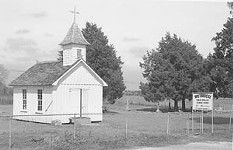Keeping the Faith
Women lawmakers endure – and defy – the anti-choice wrath of the Catholic Church
By Jordan Smith, Fri., April 6, 2012
(Page 2 of 2)
Among those disturbing tales is that of former Williamson County Democratic state Rep. Diana Maldonado, who was publicly called out by then-pastor Joel McNeil of her parish, St. William Catholic Church in Round Rock. When Maldonado first decided to run for state office in 2008, she went to McNeil, she says, to ask for his blessing. He gave it – even knowing, she says, that Maldonado, a single mother of two and a former member of the board of the Round Rock Independent School District, was pro-choice. Back then, it seems, the revelation didn't raise the pastor's or the church's hackles.
By the time she was running for re-election in 2010, however, a new bishop, Joe S. Vásquez, had taken the reins at the Austin Diocese, and things had apparently changed. After a couple of "deep-pocketed" parishioners (as Maldonado put it) approached McNeil to complain that Maldonado supported reproductive choice and access to birth control, Maldonado says McNeil called her to his office for what she recalls was the most awkward two-hour meeting she's ever endured. The priest said her soul was in trouble because of her beliefs about reproductive health and rights, and he tried to persuade her to accept instead what he considered the Catholic way of things. She refused. "I told him I'm not just going to fall in line," she recalls. She explained to him the reasoning behind her beliefs and asked him a question: "Here I am, a single parent, raising two kids and putting them through school; I'm a public employee, and I have worked with the school system," in addition to being a lifelong Catholic active in church life. "'Because I happen to be pro-choice, all of this doesn't matter?' He said, 'Yes.' I said, 'My conversation with you is done.'"
And that was that – or so Maldonado thought. Instead, McNeil composed a letter that he sent to the entire parish – save for Maldonado and her parents, also parish members. In it, McNeil noted Maldonado's candidacy and all but explicitly discouraged his parishioners from voting for her because of her support for reproductive choice, which the church considers an "intrinsic moral evil," McNeil wrote. "One assumes because she is a member of the Catholic Church and has publicized her affiliation with St. Williams [sic] on her website, in the press, and on our parish bulletin that she would think with the Church [emphasis original] in the most important areas," he wrote. "In some areas she does. However, there is concern about her stands in some other areas," he continued. McNeil's job, he wrote, is to "explain the faith so that all might correctly form their consciences based on truth known both through human reason and revelation."
Maldonado, according to McNeil, didn't sufficiently accept his explanations. "Several people [presumably, St. William parishioners] have contacted Diana's campaign office," McNeil wrote. "The manager of her office confirmed in no uncertain terms on multiple occasions that Diana is pro-choice," he continued [emphasis original]. "They have forwarded those emails to me, and I have read them. This is not 'hearsay.'"
Maldonado was horrified – in part because McNeil had used portions of their private conversation in the text of the letter, but more directly because of the public position the church was taking regarding her personal beliefs. "He was adamant that this was something parishioners had brought to his attention and he was heeding their requests," Maldonado recalls. "I asked, 'what about me as a parishioner?' He was pitting us against each other." (Indeed, McNeil's wading into partisan politics may also have crossed the line into the kind of express advocacy that jeopardizes the church's tax-exempt status; whether that circumstance was ever vetted by McNeil's superiors is unknown, but Maldonado says McNeil was subsequently reassigned to a parish in Nebraska.)
Maldonado ended up leaving St. William, and for the better part of two years has wrestled with her Catholic faith. "I stayed away for a couple years. I was questioning all of the hypocrisy," she says. In part, Maldonado says, she believes the Catholic church is in "some ways ... cruel to gender. There are far more requirements and stipulations for women than for men." And being a woman, a Catholic, and a public official is what she believes made her a specific church target. "I think that there is more of a push or emphasis to wrestle with women legislators" when there are areas of conflict with doctrinal interpretation, she says. Hutchinson agrees. Again, anecdotally – Hutchinson declined to share the details of any of the numerous stories she's heard from officeholders around the country – "I find that the stories I hear [of] the more strict and patriarchal reactions have been with female legislators," she says. Although there are plenty of male lawmakers who are Catholic and who are pro-choice, including in Texas, it doesn't appear that church hierarchy calls them to task nearly as often as it does their female counterparts.
The Austin Diocese disagrees; Gonzalez says the diocese has applied its guest speaker rule equally for male public officials. When Chicago Congressman Luis Gutierrez came to Austin to speak on immigration, Gonzalez said, the diocese refused to let the event take place on church property because of Gutierrez's "100% approval rating from NARAL." "Because of that, we could not allow him to speak on church grounds." Moreover, in fall 2010, the church told Rabbi Alan Freedman of Temple Beth Shalom that he would no longer be able to use church property for Yom Kippur services because Freedman serves on the board of Planned Parenthood of the Texas Capital Region, as chair of the group's Clergy Advisory Group. (Notably, although neither Gutierrez nor Freedman's positions were new or secret, the Austin Diocese did not act to move either event until just days before they were to take place; indeed, Freedman had been allowed to use church property for services for about a year before the Yom Kippur incident.)
Life Issues
The Austin Diocese gets between 10 and 20 speaker requests per month, says Gonzalez, and it tries to review each carefully and fairly. "We do our best to have the rules applied fairly, across the board," he said. In general, a speaker is asked to submit a bit of personal background information, and then the diocese vets the person for "what the background is, what the topic is, and how vocal" the person is on any particular issue – in particular issues that might contradict Catholic teachings. "We look into as many different things as we can," he says. Obviously, though, a "politician who puts [him- or herself] out there" on any particular issue is going to be easier to review than a more private citizen, he notes – thus, for example, the disagreement with Dukes.
Could a non-Catholic ever be a speaker? That's happened before, says Gonzalez, because "everyone is looked at on their own merits." What about a divorced person? Perhaps, says Gonzalez. But he insists that the diocese takes seriously positions beyond just reproductive health issues – including beliefs on the death penalty, which he says also fits into the realm of "life" issues.
While that may or may not be the case in Austin, it certainly isn't the norm around the country, says Hutchinson, who can't readily recall any officeholder being admonished for countering church doctrine on anything other than reproductive health issues or support of LGBT equality. "That is the only [area other] than in women's health [issues] where this is happening," she says.
Yet the lessons seem not to be bearing fruit. According to a recent report from the Guttmacher Institute, just 2% of sexually active Catholic women actually use natural family planning, the only method of "birth control" condoned by the church; 87% of sexually active Catholics use some other form of contraception, including birth control pills, condoms, or sterilization, and 70% of Catholics are sexually active by the age of 24. In other words, it doesn't appear that the hierarchy's hard line has had much effect, at least on the church's own members. And that may in fact be the point not only of taking a stance on health care reform and the birth control coverage rules, but also of being more adamant and public about calling out public officials who deviate from the party line, says Hutchinson.
"They've been unsuccessful convincing Catholics in the pews of the strict and harsh policies of the church. They know people are making choices for their families that don't necessarily follow church teachings," says Hutchinson. "They can't get them to follow them within the walls of the church, so they're moving outside" to lawmakers and into politics to get to where they want to go. "I don't know that it's happening more than it used to, but they're willing to be more public about it."
In Defense of Conscience
Dukes says the decision to prevent her from speaking was nakedly political, and that she won't back down. She's taken some heat, mostly from posters to the blog of CatholicVote.org, who suggest that the diocese merely stood up for what was right and moral. "She has turned her back on God, God's Authority, and God's creation of life," one poster wrote. "She is pro-abortion and contraceptives. She has made a decision to turn her back away ... instead of joining God hand in hand in the fight for HIS unborn."
Ironically, the Women's Health Program – support for which Dukes says was the stated reason she was given for being disinvited to speak at Holy Cross – actually aims to reduce unwanted pregnancies and, consequently, abortions. The program is only open to women of childbearing age who are not pregnant and who wouldn't be eligible for Medicaid coverage unless they were already pregnant. This is no small issue in Texas, where more than half of all births are paid for by Medicaid; under the WHP, in 2009 alone, more than 6,000 unintended pregnancies were avoided. By all accounts, the program has been a tremendous success. Unfortunately, it now faces an uncertain future because the state insists that Planned Parenthood, which serves nearly half of all women enrolled in the program, be officially excluded from participation. The federal government has said this new "rule" imposed by the state violates long-standing federal law and has laid out a plan to discontinue the program; Gov. Rick Perry says the state will find some way to find alternative providers and fund the program on its own.
Dukes says she will not waver from her support for women and their families, who are trying to responsibly plan their reproductive lives, regardless of the diocesan response. "This is about wellness," she says. On that point numerous other Austin-area clergy (although certainly not all) agree; last week, 58 faith leaders, led by Rabbi Freedman, signed an open letter to the governor affirming their support for the WHP and for Planned Parenthood. "We believe when we give women and families access to basic health care that includes contraception, as WHP does, we strengthen the moral fabric of our homes, communities and state," reads the letter. "We believe that God gave us all the responsibility to make decisions when it comes to the most private aspects of our personal and family lives, and that charting the course of life is a holy act, not a political one," it continues. "We are unanimous in our belief that the conscience of the woman has a higher moral standing than ideological agendas."
In short, says Dukes, it would take far more than a public knuckle-rapping from the church to change her mind. Maldonado, who has only recently returned to worship, says she, too, will not waver from her beliefs, but that her public conflict with the church taught her a valuable lesson: "It's been a journey. I'll always be a Catholic. Man can try to take away my religion, but they'll never take away my faith."
Download the letter from Archbishop Timothy Dolan to the U.S. Conference of Catholic Bishops, concerning national health care and "religious liberty."
Download the letter from Fr. Joel McNeil to the parishioners of St. William Church in Round Rock, concerning the candidacy for state representative of Diana Maldonado
Got something to say on the subject? Send a letter to the editor.













